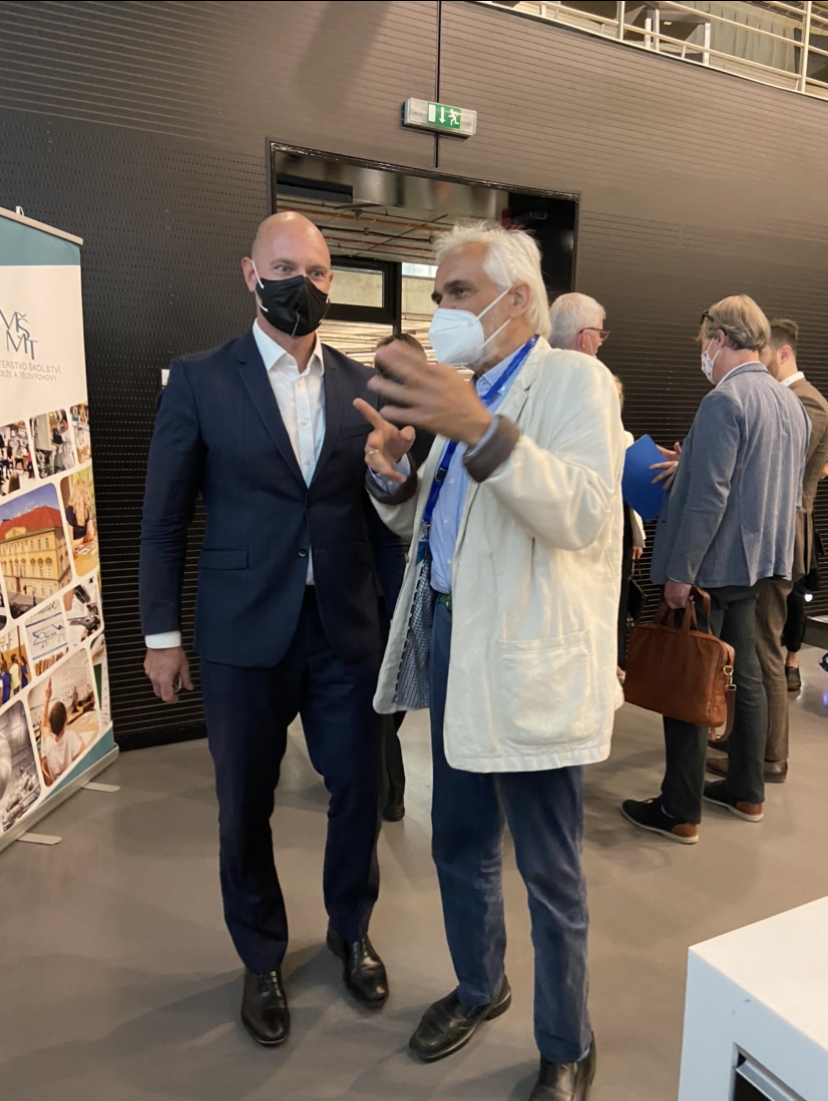At the annual semester-opening conference of the Czech Ministry of Higher Education on 8 and 9 September in Prague, the topic of “higher education ombudsman institutions” was also on the agenda.
At the invitation of the Vice-Minister for Higher Education, Science and Research, Pavel Doleček, the Higher Education Ombudsman at the Austrian Ministry of Science in Vienna and President of the European Higher Education Ombudsman Network ENOHE, Josef Leidenfrost, took part as an expert in the conference.
Sum-up of keynote presentation and audience discussions
In Josef Leidenfrosts keynote presentation “The Higher Education Ombudsman in Austria / in Europe: Observations, Recommendations”, Leidenfrost presented the most recent developments in Austria, characterised by a central ombudsman office in the Ministry and 11 decentralised ones at higher education institutions. These offices are interconnected within the so-called „Higher Education Ombudsman Network (Hochschulombudsnetzwerk)“. The main functions of this network are establishing and maintaining contacts between its members to professionalise existing ombudsman offices and support others in the establishment and internal institutional anchoring such offices.
With regard to current European developments, Leidenfrost mentioned the importance of the Rome Communiqué adopted by 48 European higher education ministers in November 2020. For the Czech Republic the Czech Minister of Higher Education Robert Plaga had signed the document. This is the first time that the importance of establishing higher education Ombuds institutions to assist in securing student rights has been set out in an official European document. Ombuds should be able to mediate in conflicts, especially in issues of equality that may arise in access to or participation in higher education, or in conflicts that hinder the completion of studies.
ENOHE, the European Higher Education Ombudsman Network, Leidenfrost explained, is ready to assist in the creation and development of such institutions. As basic criteria for Ombudsinstitutions, the so-called “Innsbruck Descriptors” were created by ENOHE in 2015. ENOHE provides European-wide webinars, annual in-person or digital conferences and various types of publications. By now, some Czech universities do already have Ombuds offices in place and operational.
The subsequent audience discussion focused on the institutional added value of Ombuds for universities, on their organisational embedding in existing structures, on relations with student representatives, on the necessities of empathy and self-empowerment, and on mediation as a special instrument for conflict management. Special attention during the discussion was also given to the situation of doctoral students and international students. Bilateral talks took place with representatives of the Charles University in Prague, of the Janáček Academy of Music and Performing Arts in Brno and of the Palacky University in Olomouc.

Czech minister for higher education Josef Plaga and ENOHE president Josef Leidenfrost this September in Prague.
